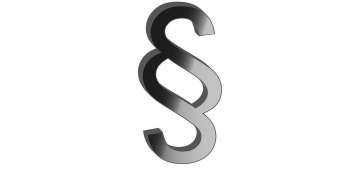No products in the cart.
Introduction
The German Trademark Act (MarkenG) is a central set of rules in German law governing the protection of trademarks and other distinctive signs. It establishes the legal framework for the registration, protection and enforcement of trademark rights. In this article, we will examine the structure of the Trademark Law, its main contents, and what it means for businesses and trademark owners.
Key Facts
- The German TrademarkAct (MarkenG) regulates the protection of trademarks, business names and geographical indications of source in Germany.
- Adopted in 1995, the Trademark Act has undergone several amendments in order to take into account the interests of all stakeholders.
- The law comprises five parts, including the registration of trademarks and the judicial enforcement of rights.
- Trademark owners enjoy the exclusive right to use their trademarks in the course of trade and to prevent the risk of confusion.
- A trademark can be canceled if it is not used within five years or is contrary to the public interest.
- The Trademark Act also protects business names and geographical indications of origin for the identification of products.
- Trademark law is crucial for companies to protect their investments and gain a competitive advantage.
What is the Trademark Act (MarkenG)?
The Trademark Act was adopted in Germany in 1995 and has undergone several amendments since then. It regulates the protection of trademarks, business names and geographical indications. The law serves to balance the interests of trademark owners, consumers and competitors.
Structure of the Trademark Law
The Trademark Law is divided into several parts that deal with different aspects of trademark protection:
Part 1: Brands
This Part contains provisions on the registration of trademarks, the rights arising from registration, and the limitations of these rights.
Part 2: Commercial designations, geographical indications of source
This regulates the rules for the protection of business names and geographical indications.
Part 3: Proceedings in trademark matters
This part contains provisions concerning proceedings before the German Patent and Trademark Office and the Federal Patent Court in trademark matters.
Part 4: Special Provisions for the Judicial Enforcement of the Rights Governed by this Law
This sets out the rules for the judicial enforcement of trademark rights.
Part 5: Final provisions
This part contains final provisions, including transitional provisions.
Essential contents of the trademark law
Trademark registration
The Trademark Act sets out the requirements for registering a trademark. A trademark may consist of words, letters, numbers, figurative representations or other signs that are capable of distinguishing the goods or services of one company from those of other companies.
Rights of the trademark owner
The owner of a registered trademark has the exclusive right to use the trademark in the course of trade. It may prohibit third parties from using an identical or similar sign for identical or similar goods or services if there is a likelihood of confusion as a result.
Barriers to trademark rights
The Trademark Act also contains limitations on trademark rights, such as the exhaustion of trademark rights, the use of a trademark in comparative advertising, and the use of a trademark to identify and describe goods or services.
Cancellation of trademarks
A trademark may be cancelled if it is not put to genuine use within five years of registration or if it is misleading or contrary to public policy or morality.
Business Names and Geographical Indications
In addition to trademarks, the Trademark Act also protects business names and geographical indications. Business names are names under which a business appears on the market, while geographical indications refer to the geographical origin of goods or services.
Proceedings in trademark matters
The Trademark Act governs proceedings before the German Patent and Trademark Office and the Federal Patent Court in trademark matters, including the filing of trademark applications, oppositions and challenges to trademarks.
Enforcement of trademark rights
Trademark owners can enforce their rights in court if third parties infringe their trademarks. The Trademark Act contains provisions on the claims and remedies available to trademark owners in such cases.
Significance of the trademark law for companies
The Trademark Act is of crucial importance to companies, as it provides the legal framework for the protection of their trademarks and business names. A strong brand is often one of a company’s most valuable assets. By registering a trademark, companies can protect their marketing and branding investments and gain competitive advantages.
Conclusion
The Trademark Act is a complex set of rules that plays a central role in the protection of trademarks and other distinctive signs in Germany. It establishes the legal framework for the registration, protection and enforcement of trademark rights. It is essential for companies to be fully aware of and comply with the provisions of the Trademark Act in order to effectively protect their trademarks and strengthen their competitive position.





















